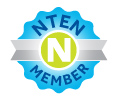Community technology organizations suffer from the paradox that they help communities take advantage of technology, yet are challenged by the lack of access to technology that is affordable, meets their unique business processes, and evolves as these organizations discover new ways for mission-driven technology to serve their communities.
The open source technology development model—where users can directly improve technology because it is liberated from the legal constraints of intellectual property, as long as improvements are subsequently contributed back into the community for others to improve upon—represents an unrealized opportunity for the nonprofit sector to develop and disseminate state-of-the-art technology that is mission driven. As technology development environments become more accessible, community technology organizations can deliver technology that creates a positive impact.
The Children’s Partnership and the Blacksburg Electronic Village have taken the lead in documenting two critical areas where community technology can have a significant positive impact on local communities: the creation of on-line content[1] and community networking[2]. PolicyLink, a national advocacy, research, capacity building, and communications organization, recognizes the opportunity to develop an inventory of community building applications that can become tools for community problem solving[3].
Even with well-documented need, community technology organizations must continuously re-invent the wheel by building web-based applications designed to support content and community networking. Often, they lack the resources for even the most rudimentary web applications available in the commercial sector.
The .COMM initiative delivers a toolbox for community problem solving on the web by having the needs and requirements of local communities define the functionality of an open-source web application toolbox. It focuses on serving community technology organizations with a basic technology capacity as “neighborhood technology experts,” and a history of community involvement. The membership of organizations like CTCNet[4] and the grantees of programs like TOP[5] provide a target list of these institutions already existing in U.S. under-served communities.
The project will address the most significant barriers to widespread adoption by community technology organizations by tackling the hard questions as an integral part of the initiative:
How do you support adoption by organizations with limited financial and technical resource, but a track record of community technology successes? (Initial Answer: Use free open source software packaged on a CD-ROM—two hours from CD-ROM to a useful, non-customized installation)
How do you support daily technology use by individuals in communities with limited technology access and knowledge? (Initial Answer: Over 600 community technology centers have been answering this question over the past five years)
Since software needs vary across communities, the .COMM initiative does not seek to deliver a pre-built solution, but rather a toolkit that reduces the cost of web application development and increases the impact of content and community networking applications. Out of the box, the .COMM platform will deliver value. Customized to the needs of a local community, it will provide reduce the barriers that prevent communities from realizing the benefits of creating on-line content and community networking.
The .COMM platform will be deployed in two California urban communities for a BETA test. Project FSS-TECH serves will serve the neighborhoods of the Pico and West Adams in mid-city Los Angeles. An additional site in the San Francisco Bay Area will be selected.
Lessons from the BETA deployment will inform the final distributions of the toolkit. After release, communities will be able to download the free, open-source software and deploy it in a meaningful way in less than a day with a minor investment and minimal technical skills.
The total cost of the .COMM initiative will be approximately $500,000, forty percent devoted to software development and sixty percent to supporting local communities in developing, deploying and supporting the technology (training, technical support, etc). Sustainability can be achieved since targeted community technology organizations will not hire new staff and already have the basic technology skills to maintain a community network.
We are currently seeking partners for the .COMM initiative. Please contact David Geilhufe at dgeilhufe@yahoo.com if you are interested.
[1] Online Content for Underserved Americans (//www.childrenspartnership.org/pub/low_income/index.html)
[2] BEV Research Summary (//www.bev.net/project/digital_library/)
[3] Online Community Content and Applications (//www.independentsector.org/pdfs/srf01/kirschenbaum.pdf)
[4] CTCs as local technology experts (//www.ctcnet.org/ctcandta.htm)
[5] TOP Evaluations (//www.ntia.doc.gov/otiahome/top/research/EvaluationReport/evaluation_report.htm)
Friday, August 10, 2001
.COMM Concept Paper
Subscribe to:
Posts (Atom)

